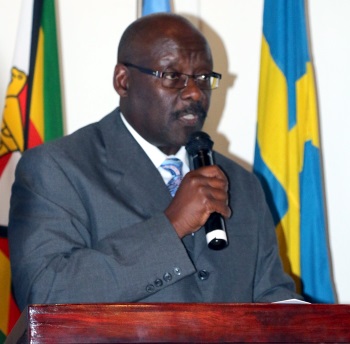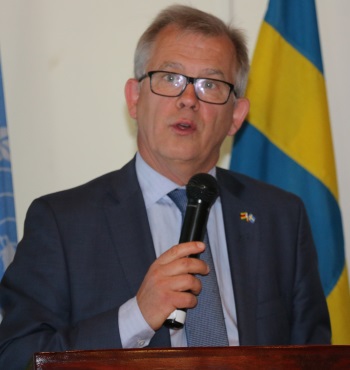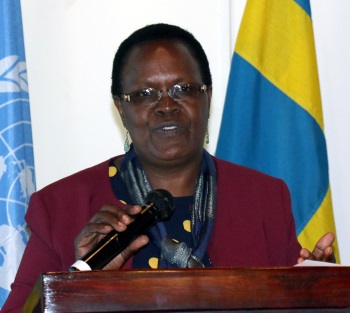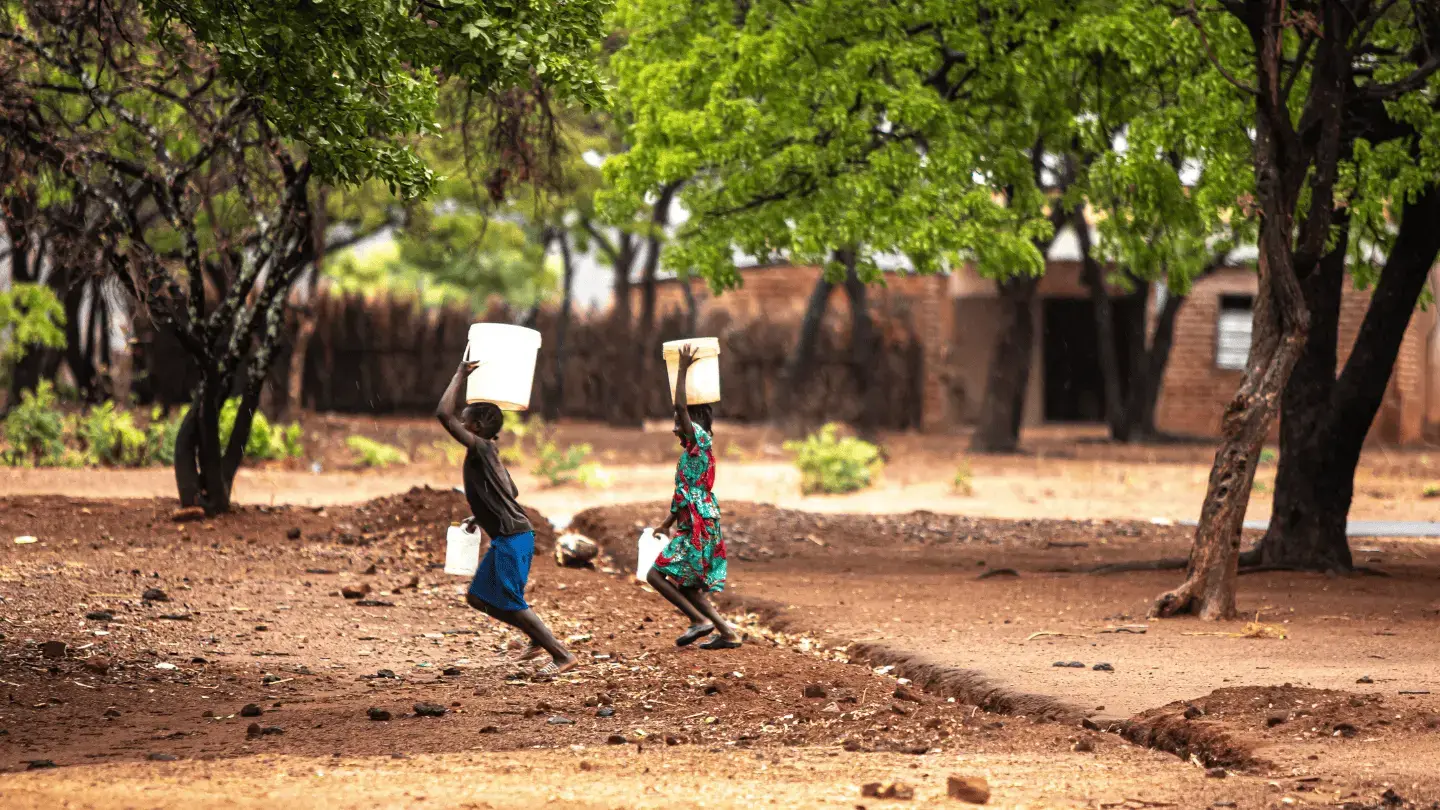HARARE, Zimbabwe – The Government of Sweden has signed an agreement to contribute 119 million SEK (US$24 million) to support Zimbabwe’s health sector through the Health Development Fund (HDF) from 2016 to 2020.

© UNFPA Zimbabwe
Launched in October 2015, the Health Development Fund is a pooled funding mechanism by various donors in support of the health sector, and is managed by UNICEF, UNFPA and the Ministry of Health and Child Care.
Building on the achievements of two previous health sector programmes, the Health Development Fund aims to consolidate and improve on gains made over the past five years by strengthening health systems and scaling up the implementation of high impact reproductive, maternal, new-born child and adolescent health (RMNCH-A) and nutrition interventions through support to the health sector.
At the signing ceremony the Minister of Health and Child Care, Dr. David Parirenyatwa, commended the Swedish government for supporting the country’s health sector, and said the support will consolidate the gains achieved so far in the sector. “The ministry will continue to lobby government to commit more resources to the health sector in line with the Abuja Declaration that recommend at least 15 per cent of the national budget to be channelled towards health.”
Swedish Ambassador to Zimbabwe, Mr. Lars Ronnas, said the agreement and the contribution is in line with his government’s priorities for development cooperation globally.

© UNFPA Zimbabwe
UNICEF acting Representative, Ms. Jane Muita, thanked the Swedish government for the contribution and also the Government of Zimbabwe for being a strong partner in improving the health delivery system, particularly through the Health Development Fund.
Zimbabwe has managed to bend the curve on maternal and child mortality after decades of an upward swing. A strong, robust partnership under government leadership has been key to revitalizing maternal, new-born and child health services and realizing the gains achieved so far.
“With the agreement we have signed today, Sweden will provide a substantial contribution to bring down the maternal mortality rate in Zimbabwe. It is commendable that the HDF will have a strong focus on inclusiveness and equity, reaching out to the poor and vulnerable.”

The Health Development Fund, together with other funding mechanisms supporting the health sector, has been instrumental in catalyzing the overall effort to resuscitate the health sector by investing in selected critical areas of the health system where huge funding gaps were identified.
“The HDF will help to consolidate the number of gains made in the health sector,” said UNFPA Zimbabwe Country Representative Cheikh Tidiane Cisse. “The continued support of partners such as the Government of Sweden will help consolidate some of these gains.”
It is expected that the HDF will contribute to the reduction of maternal and child mortality by 50 per cent, an increase in access to family planning, halving the prevalence of stunting in under five children, and elimination of Mother-to-Child Transmission of HIV, all by 2020, while combating HIV and AIDS, malaria and other preventable diseases.
By Margret Masanga




